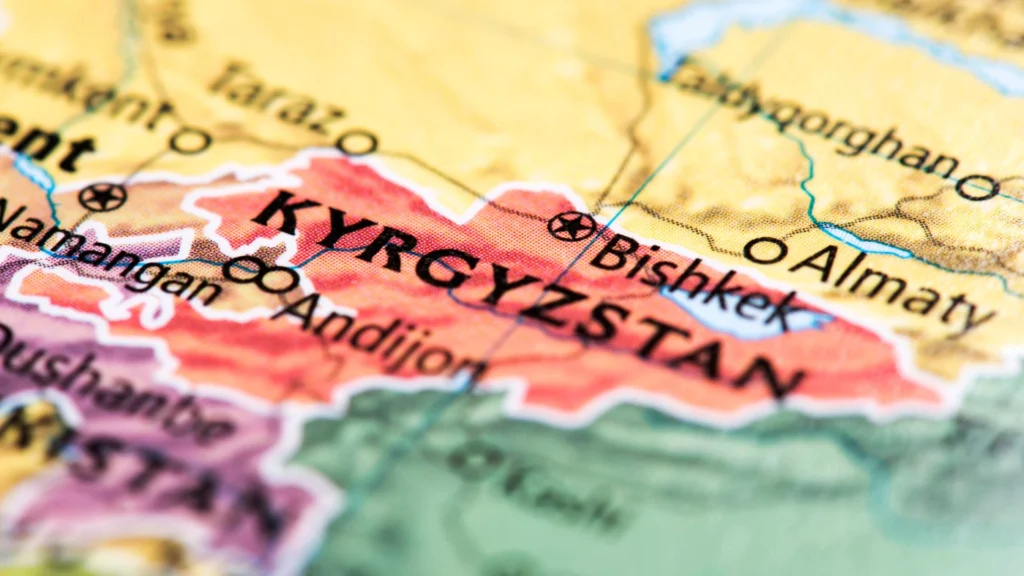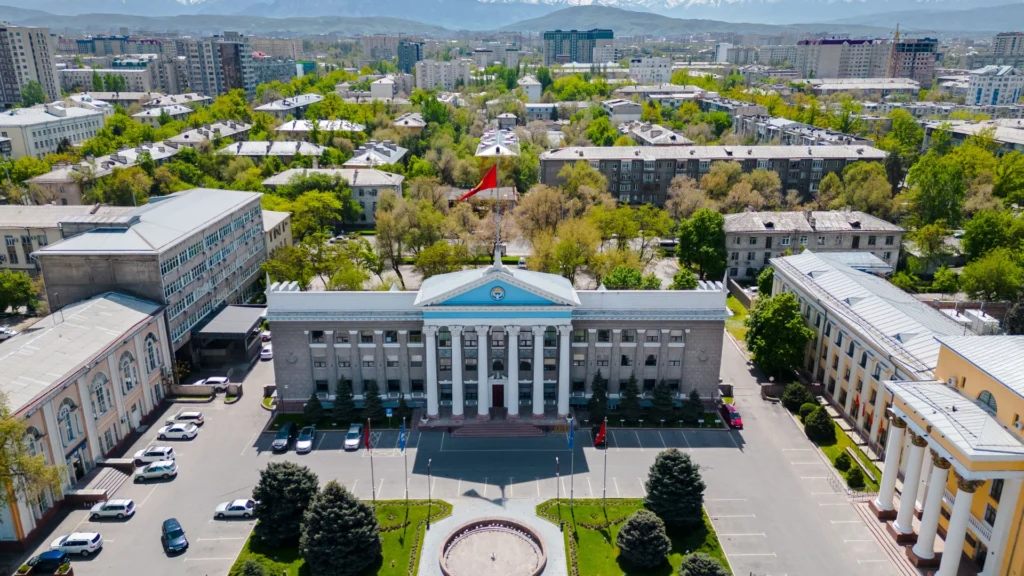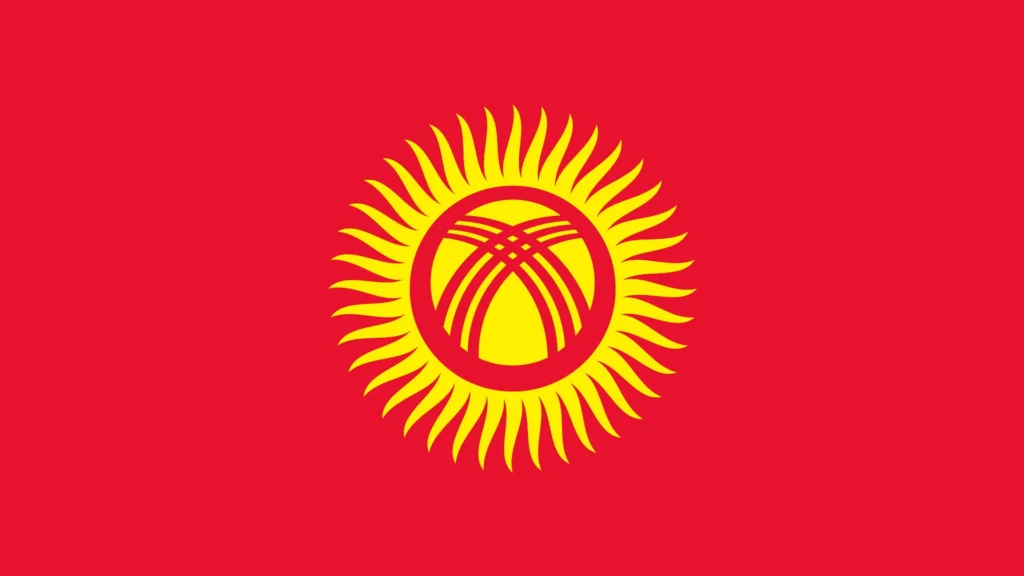Delta Medical in Kyrgyzstan

Delta Medical, a Swiss pharmaceutical company, has operated in Bishkek for over 20 years. We assist international healthcare companies entering the Kyrgyz market by offering our distribution capabilities, regulatory affairs consulting, and local marketing expertise. We help international clients solve the country’s complex regulatory procedures, supply chain obstacles, and distribution challenges unique to importing pharmaceuticals, medical devices and health supplements.
This overview assesses aspects of Kyrgyzstan’s healthcare system financing, medical personnel shortages, and barriers limiting patient access and affordability. It also analyzes market size, production versus imports, drug/device regulations, pricing policies, and logistics infrastructure considerations for the local pharmaceutical industry. There will be separate articles where we address issues in greater detail.
Healthcare organizations can leverage Delta Medical’s two decades of on-the-ground experience in Kyrgyzstan as a valued partner for market entry or expansion. We offer the specialized in-country knowledge and working relationships needed to successfully introduce healthcare products and services in this market.

Healthcare System in Kyrgyzstan
The healthcare system in Kyrgyzstan is based around the Mandatory Health Insurance Fund (MHIF) model. However, with high out-of-pocket spending (over 50%) and infrastructure gaps, significant access and quality issues persist.
The Mandatory Health Insurance Fund (MHIF) plays a central role in Kyrgyzstan’s healthcare system. Here are some key details:
- Established in 1997 to pool funds and purchase medical services
- MHIF covers over 60% of population (3.5 million people)
- Financed by payroll taxes on employers and employees
- Also receives budget transfers from Ministry of Health
However, MHIF remains underfunded relative to needs:
- Total revenue in 2021 was 12 billion KGS ($150 million)
- But over 50% of total health spending is out-of-pocket by citizens
- MHI package covers limited medicines, tests, procedures
- Many services require high co-payments (40-90%)
This leads to significant barriers in accessing medical care:
- Shortages even for covered essential medicines
- Long wait times for diagnostics, specialist care
- Informal payments requested by providers
Thus, despite having a structured insurance system, lack of adequate financing severely constrains service quality and utilization. Strengthening MHIF funding is crucial for the Kyrgyz healthcare reforms to progress.

System Structure
The Kyrgyz healthcare system comprises various facilities and programs:
- Hospitals – 393 total, or 4.9 per 100,000 population
- Rural health centers – 600 facilities
- Family medicine centers – 1500+ facilities
- Mandatory Health Insurance (MHI) – Covers 60% of population
Financing
In 2019, total health expenditure was $600 million or 6.3% of GDP. But public spending remains low:
- Government health spending – $173 million (2.6% of GDP)
- Out-of-pocket spending – Over $300 million (50% of total)
This leads to underfunding of infrastructure and personnel.
Personnel Shortages
Kyrgyzstan faces an acute shortage of healthcare professionals:
- Doctors – 21 per 10,000 people
- Nurses – 50 per 10,000 people
Rural and remote areas are especially underserved.
Access Barriers
While over 3.5 million citizens are covered under MHI, many face barriers:
- Medicines shortages – common issue even at largest providers
- Informal payments – 20-50% of hospital bills
- Long waits for tests, procedures – up to 3-6 months
Systemic funding gaps limit access and quality.

Kyrgyz Pharmaceutical Market
The pharma market in Kyrgyzstan is small but has been growing steadily. There is high reliance on imports with over 90% of medicines sourced from abroad.
Domestic production is limited to generics and simple formulations.
Pharmaceutical Market Size
In 2021, the total pharmacy market size was over 15 billion KGS ($190 million) with over 55 million packs sold. Key features:
- Growth – Market has tripled in value since 2015 at 8-12% CAGR
- Segments – Prescription drugs account for ~65% revenue
- Players – Over 750 distributors and suppliers registered
Production and Trade of Pharmaceuticals
- Domestic output – Just $20 million; 3% of market
- Exports – Minimal at under $500,000 per annum
- Imports – Over $170 million worth of drugs imported
- Origin – Most imports from Russia, Kazakhstan, India

Registration & Regulations on Pharmaceuticals
The registration and sale of medicines in Kyrgyzstan is overseen by the Ministry of Health and the State Registration Department.
Key regulations include:
- Law on Medicines – Defines registration process, standards etc.
- Patent Law – Provides IP protection rules
- GMP Standards – Mandatory for local manufacturers
The average registration time is 4-6 months. Requirements include:
- Dossiers with safety, efficacy data
- Local clinical trials in some cases
- Inspections for GMP compliance
Pricing Policies of Pharmaceuticals in Kyrgyzstan
The Kyrgyz government regulates maximum sale prices for medicines included in the Vital & Essential Drugs List (VEDL).
- VEDL covers over 500 generic molecules
- Prices calculated based on reference countries
- Applies to locally made & imported medicines
However, real affordability remains a key challenge:
- High co-pays for covered drugs (50% or more)
- Most new branded drugs not covered under VEDL

Pharmaceutical Logistics Infrastructure in Kyrgyzstan
Key industry challenges include:
- Fragmentation – Many small distributors & importers
- Regional disparities in access
- Cold chain gaps especially in remote areas
To enhance availability, infrastructure upgrades are planned around:
- Centralized procurement
- Integrated distribution networks
- Expanding warehousing capacities
Table: Key Healthcare Organizations in Kyrgyzstan
| English Name | Russian Name | Description |
| Ministry of Health | Министерство здравоохранения | Main healthcare governing body, sets policies and legislation |
| Department of Medicines and Medical Devices | Департамент лекарственных средств и медицинских изделий | Registers and quality controls medicines, licenses pharma economic activities |
| Agency for Antimonopoly Regulation | Агентство антимонопольного регулирования | Enforces competition laws regarding drug pricing & trade |
| Compulsory Medical Insurance Fund | Фонд обязательного медицинского страхования | Administers reimbursements & covered drug lists |
| Public Health Protection Agency | Агентство охраны общественного здоровья | Sets & enforces safety standards for medicines |
| Intellectual Property Agency | Агентство интеллектуальной собственности | Manages patent registrations & protections |
| Ethics Committee for Clinical Trials | Этический комитет по контролю клинических исследований | Provides approvals & oversight for clinical studies |
| Republican Center for Health Promotion | Республиканский центр содействия укреплению здоровья | Implements public health and disease prevention programs |
| Republican Center for Immunoprophylaxis | Республиканский центр иммунопрофилактики | Oversees national immunization program |
| Republican AIDS Center | Республиканский центр СПИД | Coordinates HIV/AIDS control activities |
| Republican Center for Mental Health | Республиканский центр психического здоровья | Leads mental health services and psychiatric care |
| Republican Narcology Center | Республиканский наркологический центр | Provides treatment and rehab for substance abuse |
| National Hospital | Национальная больница Минздрава | Largest tertiary care hospital in Kyrgyzstan |
| National Center of Oncology and Hematology | Национальный центр онкологии и гематологии | Specialized cancer hospital and research institute |
| National Center for Maternity and Child Care | Национальный центр охраны материнства и детства | Specialized hospital for maternal and child health |
| Kyrgyz State Medical Academy | Кыргызская государственная медицинская академия | National medical university that conducts medical research |

Delta Medical Assists Market Entry into Kyrgyzstan
Kyrgyzstan’s healthcare system has key challenges. These include chronic underfunding and lack of skilled personnel. Yet growing consumer demand and regulatory reforms offer growth opportunities for international firms, especially in pharmaceuticals and medical technology.
Kyrgyzstan’s market is small and has its own complex rules. Strict import rules, supply chain issues, and pricing controls pose hurdles to entry and expansion. Partnering with trusted local players helps mitigate these barriers and makes market entry cost effective.
Delta Medical has over 20 years of on-the-ground experience in Kyrgyzstan’s healthcare sector. Our comprehensive in-country services help global healthcare companies successfully introduce products into this developing Eurasian market.
Kyrgyzstan presents difficulties but also longer-term potential. Healthcare firms looking to enter or expand here would benefit greatly from Delta Medical’s:
- Expertise navigating import restrictions
- Securing reliable in-country supply chains
- Local marketing know-how
- Guidance on meeting complex regulatory compliance
Contact us to discuss partnership opportunities to establish or grow your foothold in the Kyrgyz healthcare market.
Delta Medical Kyrgyzstan Participates in National Conference on Hepatitis B/D in Bishkek
February 5, 2026 — Bishkek, Kyrgyzstan Delta Medical Kyrgyzstan took part in the scientific-practical conference…
Kyrgyzstan Proposes Removing VAT Exemptions on Medicines and Medical Devices
The government of Kyrgyzstan has recently proposed eliminating the value-added tax (VAT) exemptions on medicines…

